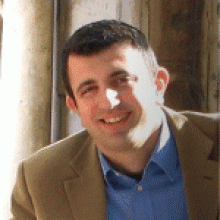Optical simulators rank among the most promising candidates to power future technological breakthroughs in terms of speed, scalability, power-consumption and quantum advantage, serving a wide range of useful optimization problems. However, the operation of such simulators remains currently limited by noise, the extent of algorithmic problems they can embed and to the classical regime where they compete with supercomputers. HEISINGBERG aims to bring our state-of-the-art spatial photonic spin simulator (an iterated cycle of all-optical processing through a spatial light modulator that couples 10,000 spins) into the quantum regime by upgrading its coherent drive to squeezed light, making it fully programmable through vector-matrix multiplication schemes, use of holography, ancillary spins & effective magnetic fields, and designing dedicated custom-tailored and purpose-built algorithms. The reduced fluctuations in one quadrature of the fields will allow us to scale up and optimize the performances of the existing machine to bring it beyond the capabilities of both classical supercomputers and competing spin-simulators. HEISINGBERG devices will operate 100,000 spins at room temperature and process new quantum annealing algorithms on an improved XY architecture. Besides, the nonclassical resources of squeezed states when modulated, admixed and phase-controlled through beam splitters, such as entanglement or superpositions of multiphoton states will be prospected to harness a quantum advantage and boost our machine into its quantum simulation regime. This development will stimulate the quantum information processing community by concretely articulating problems of algorithmic complexity and clarify the nature of the quantum advantage available in annealers and simulators. These advances will allow us to demonstrate, on a cloud platform, annealing and adiabatic algorithms that can efficiently solve NP-hard problems.
Through HEISINGBERG, the Consortium aims to develop a device dedicated to solving combinatorial optimization problems, with the implicit goal of commercializing a new quantum simulator paradigm. This paradigm leverages: a novel approach based on Holographic spin encoding; all-optical manipulation of interactions; all-to-all and weighted connectivity; straightforward scalability; room temperature operation; relatively low energy requirements.



